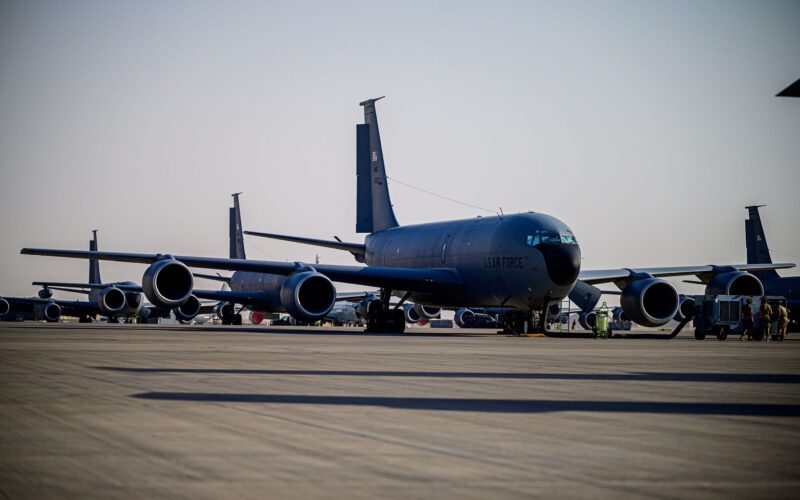The modernization of the US Air Force tanker fleet is about to enter a new phase, called the KC-Y program. On June 16, 2021, the Bridge Tanker Program Office of the Air Force Life Cycle Management Center issued a Sources Sought Notice for manufacturers to provide “approximately 140-160 Commercial Derivative Tanker Aircraft—at a rate of 12 to 15 per year.”
Deliveries should start from 2029, coinciding with the last delivery of the Boeing KC-46A Pegasus acquired as part of the previous KC-X program. Thus, this aircraft will act as a bridge between the Pegasus and the next program, KC-Z, which will see the development of a much more innovative aircraft with stealth capabilities.
Like the KC-X tender, the competition should once again see Boeing face Airbus in partnership with Lockheed Martin. The requirements for the KC-Y acquisition have not yet been defined, but they could see the KC-46 Pegasus and the A330 MRTT compete again.
As a reminder, it was Airbus (partnered with Northrop Grumman at the time) that initially won the KC-X competition with its A330 MRTT. Its aircraft was already in production at a time when the KC-46 Pegasus was still on the drawing board. But after several years of political lobbying, the contract was eventually taken away from Airbus and given to Boeing. The current order totals 179 aircraft, of which 46 have been delivered.
The KC-46 Pegasus was supposed to reinforce the thin-stretched refueling capacities while replacing the KC-10 Extender, with the entire fleet due to be withdrawn by 2025. But the development of the tanker already exceeded the initial forecast by $3 billion (which hints at a deliberate underestimation to win the contract over Airbus).
To add to that, the aircraft has encountered numerous technical problems since its delivery, including a plethora of “critical deficiencies” that could take years to fix. In its financial results for 2020, Boeing reported a new $275 million charge for the deficiencies of the KC-46 Pegasus. That put the total cost overruns of the program at above $5 billion, exceeding the initial cost of the contract with the USAF at $4.9 billion.
Besides the cost, the problems encountered with the KC-46 jeopardized the aerial refueling capacities of the USAF. Several military officials have voiced their concerns regarding the aircraft since its induction. In February 2021, the US Transportation Command in charge of the power projection capabilities of the US military declared in a tweet that the capacity gap of the air refueling fleet put “America’s ability to effectively execute day-to-day operations and war plans at risk.”
While Airbus will likely face the rebuttal of some US lawmakers once again, the A330 MRTT has since illustrated itself as a reliable aircraft, with twelve countries currently operating the A330 MRTT. Globally, 61 A330 MRTT tankers were ordered, out of which 47 are already operational. India could join the list of operators as the Indian Air Force plans to lease one A330 MRTT tanker from France for training purposes and five more to act as aerial refuelers for their fighter jets, as the Hindustan Times reported in April 2021.

